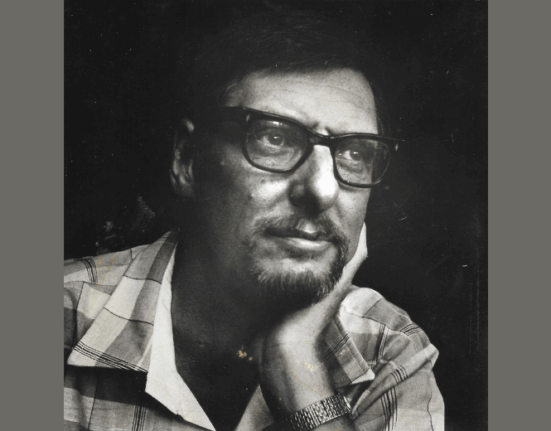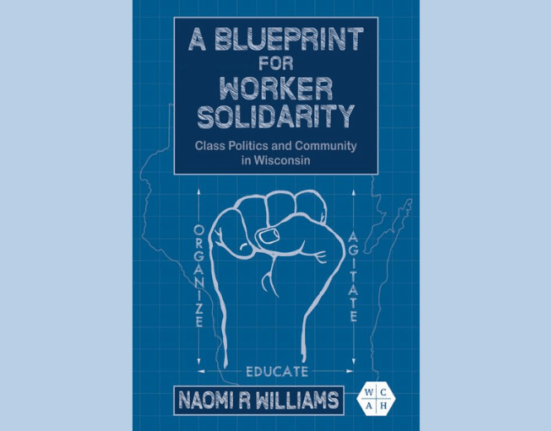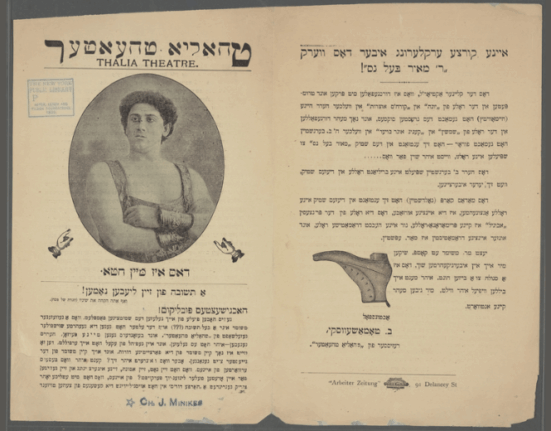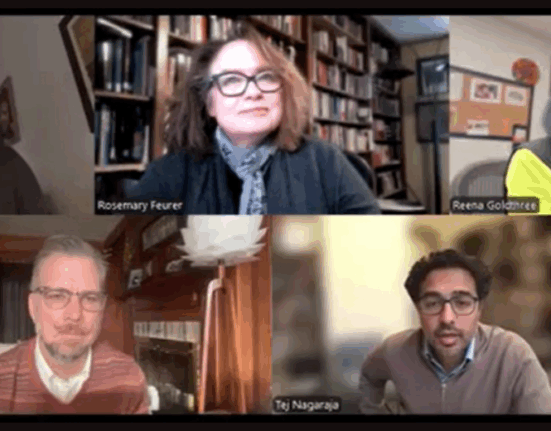Since winning two NLRB elections at Buffalo stores last December, the remarkable Starbucks Workers United union campaign has now spread to well over 100 stores in over 26 states. In response, Starbucks management has bombarded baristas with anti-union text messages, forced them to attend “captive audience meetings,” threatened to close unionized stores and tried to drive out activists at unionized stores in Buffalo, New York, attempted to pack bargaining units with newly-hired employees and limited their contact with pro-union workers, and allegedly fired union several union activists at stores in Memphis and elsewhere.
However, Starbucks’ principal anti-union strategy so far has been to get its law firm — “union avoidance” behemoth Littler Mendelson — to delay elections and vote counts and argue that the union elections should not be conducted on a store-by-store basis, but by clustering multiple stores in a single geographic region, in the belief that larger units would effectively hobble worker organizing. Starbucks has engaged the services of at least 30 Littler attorneys – an extraordinary number – but it has failed to halt the grassroots-driven organizing campaign: the Biden NLRB has thus far rejected Littler’s appeal of single store bargaining units, and the company’s anti-union campaign appears to be floundering. In the most recent NLRB vote count late last month in Mesa, Arizona, the Starbucks Workers United trounced the company by 25 votes to 3. One employer source blamed the bargaining unit decision: “Had Starbucks prevailed in [getting multi-store bargaining unit], it may have been able to get more baristas who were not in favor of a union to participate and change the outcome”
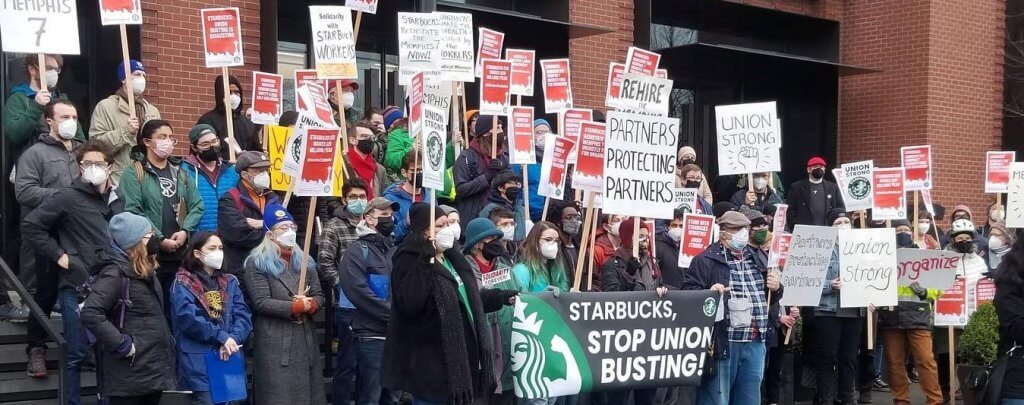
Starbucks has been keen to associate itself with progressive values and has denied charges of union busting, but it has hired the most fearsome anti-union law firm in the country. But why is Littler Mendelson the “go to” law firm for big corporations seeking to defeat union campaigns? Here are ten key facts about Starbucks’ union avoidance behemoth.
- Littler has moved from a regional to national to global union avoidance powerhouse. Formed in San Francisco between 1942-1944 by management attorney Arthur Mendelson and former West Coast director of the War Labor Board, Robert Littler, Littler Mendelson is the world’s largest employer-side labor and employment law firm. Although the traditional “counter-organizing” business has declined in the United States as union membership has declined, the biggest union avoidance law firms such as Littler now dominate a larger part of that business more than ever before. In its formative years, Littler had a fearsome regional reputation for fighting unions in the Western United States. By the 1990s, it had grown into a nationwide union avoidance firm. With over a thousand attorneys in the United States, and over half a billion dollars in annual revenues, Littler is now the nation’s largest law firm specializing in union avoidance activities and has participated in thousands of anti-union campaigns. As discussed later, in the past decade, Littler has expanded its union avoidance services globally.
- Littler Mendelson has a reputation for being one of the nation’s most aggressive anti-union law firms. Under the title “Union Prevention,” its website states, “We help employers develop strategies for dealing with union avoidance” so they can “detect early warning signs of organizing activities, and minimize the risk of organizing campaigns.” Arthur Mendelson, one of the firm’s founding partners, explained its approach to union campaigns: “Our clients pay a lot of money…. If they want aggressiveness, they are entitled to it”. A 1997 profile in the Washington Post stated that Littler was “infamous for using the intricacies of labor law to thwart organizing and, if unions win elections, to delay the bargaining indefinitely.” In the 1980s and 1990s, students at Harvard Law and other leading law schools boycotted Littler and a handful of other big management-side law firms because of their “union-busting activities.”
- Littler Mendelson’s union avoidance practice is so extensive that it provides anti-union advice by sector. Corporations increasingly want law firms that not only understand union avoidance, but also understand their specific sector and Littler caters to that demand, with a focus on defeating union activity in healthcare, higher education, retail and other industries. The Retail Division states that large retailer employers are “often the targets of union organizing campaigns. Littler has decades of experience counseling retail clients regarding union avoidance and performing comprehensive training for managers on union avoidance. Moreover, Littler has “tailored our union avoidance training…. to be directly relevant to retail clients, and are always able to modify a particular program for specific retail needs.” And, as discussed next, Littler has experience with anti-union campaigns involving thousands of small food retail stores.
- Littler Mendelson has participated in multiple high-profile anti-union campaigns. For example, Littler represented Japanese auto manufacturer Nissan during its “ferocious” anti-union campaign against the United Auto Workers in Canton, Mississippi from 2014-2017. Nissan faced multiple allegations of unlawful anti-union tactics, and labor and civil rights leaders castigated the company and its attorneys for running “one of the nastiest anti-union campaigns in modern American history.” Littler also played a key role in opposing the “Fight for $15” and campaign to organize McDonald’s workers. Littler provided “guidance to McDonald’s franchisees on how to counter the protest movement for improved pay and working conditions,” and set up a hotline for franchisees to get legal advice on how to deal with union actions. During the fast food campaign, Littler Mendelson’s “Do’s and Don’ts in Union Campaigns” stated that employers who encounter union organizers should “Escort them off the property. Call the police to have them removed if necessary.” However, during the Starbucks union campaign, which has largely been based on the self-organization of ordinary baristas, Starbucks management would be hard pressed to find any outside professional union organizers.
- Littler has expanded its activities to lobbying and policy expertise, and plays an important role in developing and promoting anti-union legislation. Formed in 2006, Littler Mendelson’s Workplace Policy Institute (WPI) seeks to “Engage with key policymakers in Congress, the administration and relevant agencies [and] Coordinate advocacy efforts and issue campaigns at the state and local levels of government.” WPI played a central role in coordinating opposition to California’s landmark law turning gig workers into employees (AB5), and it was active in the industry’s unprecedented $200 million proposition campaign to overturn the legislation. Along with platform companies Lyft, Postmates and TaskRabbit, the WPI is a key player in the “Coalition for Workplace Innovation,” which seeks to fight state- and local-level legislation designed to strengthen labor rights for gig workers. Littler also frequently plays a prominent role in proposing policy changes at the NLRB — and several former Littler lawyers have gone on to become the most conservative members of the NLRB — to counteract new union organizing strategies, such as labor peace and neutrality agreements or minority unions, including the newly-formed Alphabet Workers Union at Google, and has resisted any effort to impose financial reporting requirements for union avoidance law firms.
- Littler has promoted the specific anti-union tactics currently being used at Starbucks: First, Littler attorneys have opposed efforts to shorten the time available for corporations to conduct anti-union campaigns. When the Obama NLRB streamlined union elections to reduce deliberate delaying tactics by anti-union employers, Littler complained that its revisions would “unduly and severely cut into the time for employers to campaign.” Second, Littler has defended mandatory captive audience meetings. Opposing the Protecting the Right to Organize (PRO) Act, Littler complained that it “would prohibit employers from requiring employees to attend meetings regarding the employer’s views on unionization.” Third, Littler has supported employers’ right to influence bargaining units in NLRB elections; it has warned that unions generally seek to keep bargaining units small because it was “easier it was to win an election by maintaining a tight base of pro-union supporters.” Moreover, “unions found that once they got their foot in the door by representing one group of a company’s employees, they could then approach other groups more successfully.” Thus, Littler has opposed NLRB decisions that favor smaller bargaining units. Finally, Littler has opposed harsher penalties for persistent labor law violators, criticizing the proposal of the Biden administration to allow the NLRB to impose monetary penalties on employers who commit unlawful anti-union practices.
- Littler is one of an increasing number of firms using data analytics and technology in their anti-union work: dark web sites, data-driven union vulnerability “heat maps” and anti-union computer monitoring software are some of the tools of this new frontier in union avoidance. According to one recent analysis, Littler has been at the forefront in developing data-driven anti-union techniques. The head of data analytics at Littler Mendelson stated that the firm is “working on how to use data analytics as a way to predict union risk that is similar to how data analytics platforms predict this risk.”
- Littler Mendelson Goes Global: Along with only two or three other giant US-based law firms that specialize in union avoidance, Littler has “gone global” in the past decade, with more rapid international expansion than any of its main rivals. Twenty-six of Littler Mendelson’s eighty-one offices are now located outside of the United States, and it now has over 600 attorneys based in its overseas offices. “Littler Global” opened its first international office in Venezuela in 2010, it opened its first European office in Berlin in 2015, and it opened its first Asian office in Singapore in 2019. In recent years, Littler has substantially expanded its activities in Latin America, with offices in Mexico, El Salvador, Nicaragua, Guatemala, Honduras, Costa Rica, Dominican Republic, Panama, Venezuela, Brazil, and Colombia. Littler not only seeks to represent its MNC clients in their US-based operations, but also to represent them in global labor relations issues.
- Littler’s Anti-Union Policy Advocacy Goes Global: In addition to seeking global corporate clients, Littler has increasingly participated in contentious debates over international labor standards at the ILO, OECD and other multilateral organizations. Opposing the landmark 2013 Bangladesh Accord on Fire and Factory Safety, for example, a Littler attorney stated that European brands were more likely to sign on to the Accord because they “have a much more institutionalized relationship with trade unions, where our model here is different.” Littler has also opposed “global framework agreements” between global unions federations (GUFs) and MNCs because they “can deny a business the use of union avoidance measures.” It has proposed using the OECD Guidelines on Multinational Enterprises – a process intended to protect vulnerable workers against abuses by powerful corporations — to file and publicize complaints against GUFs. In Congressional testimony, Littler attorneys have called for GUFs to be regulated by U.S. labor law; it has criticized the “Ruggie Principles” on Business and Human Rights; and it has helped formulate employer positions at the ILO on freedom of association issues. Littler attorneys have argued that ILO jurisprudence protects — and even requires — anti-union campaigning during organizing campaigns.
- Littler Mendelson has been at the forefront of calling for onerous legal restrictions on “worker centers,” which provide legal advice and representation on wage theft cases and health and safety issues for the country’s most vulnerable non-union workers. Littler has advocated tougher government regulation, even if worker centers “consider it cumbersome to comply with these obligations.” Unimpressed by their bare-bones worker advocacy, Littler calls them “labor unions by another name” or “UFOs” (Union Front Organizations, and has warned, “don’t believe they are who they say they are.”
Over the past eight decades, Littler Mendelson has helped corporations defeat worker organizing in thousands of anti-union campaigns. Thus, it is unsurprising that Starbucks would turn to Littler to help oppose work organizing in stores throughout the country. So far, the anti-union effort is floundering, and the Starbucks Workers United campaign could turn out to be one of the most important union efforts in decades.
In addition to delaying elections to prolong anti-union campaigns, stalling vote counts to frustrate pro-union workers and manipulating bargaining units to prevent fair elections, Littler wants this campaign to be viewed as Starbucks vs. “Big Labor” in the context of a NLRB election, because it knows that the odds are always in favor of powerful corporations. But this campaign is about Starbucks vs. its own employees, who are struggling for respect, just treatment and a meaningful voice at work. And Littler and Starbucks arguably don’t have the anti-union tools that would allow them to control that kind of campaign. As another prominent union avoidance law firm warned corporations, “The unionizing wave at Starbucks has energized organized labor…. Union-free companies should take note.”



